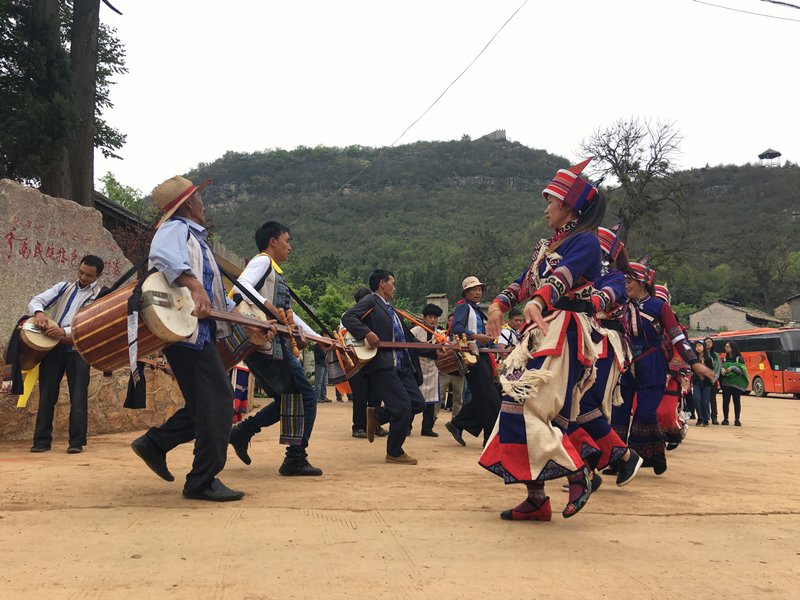 alt="Dali Erhai Lake Ecological Corridor from Xiaguan to Taoyuan"
/>
alt="Dali Erhai Lake Ecological Corridor from Xiaguan to Taoyuan"
/>
How to Plan Students Education Tour in Yunnan
Planning an educational tour for students in Yunnan involves several key steps to ensure it is enriching, safe, and well-organized:
- Define Educational Goals: Determine the specific educational objectives of the tour. This could include cultural immersion, ecological studies, historical exploration, or scientific learning.
- Select Destinations: Choose destinations in Yunnan that align with the educational goals. Yunnan offers diverse options such as historical sites (e.g., Lijiang Old Town, Dali Ancient City), cultural experiences (e.g., minority villages, traditional performances), ecological sites (e.g., nature reserves, biodiversity hotspots), and educational institutions (e.g., museums, research centers).
- Plan Itinerary: Design a detailed itinerary that includes transportation, accommodation, meals, and activities. Consider the duration of the tour and how much time will be spent at each location. Balance educational activities with leisure and relaxation to avoid overwhelming students.
- Educational Activities: Arrange specific educational activities such as guided tours, workshops, lectures, and hands-on experiences. For example, visiting historical sites with local guides, participating in cultural workshops with minority groups, or engaging in ecological studies in nature reserves.
- Safety and Logistics: Ensure safety measures are in place throughout the tour. This includes transportation safety, accommodations with appropriate facilities, emergency contacts, and health considerations. Obtain necessary permissions and permits for visiting certain sites if required.

- Budgeting: Create a budget that covers all aspects of the tour, including transportation, accommodation, meals, entrance fees, tour guides, and educational activities. Consider fundraising options if needed.
- Engage Students: Involve students in the planning process where possible. Encourage them to research destinations and activities, which can enhance their engagement and learning experience.
- Prepare Educational Materials: Provide students with pre-trip educational materials related to the destinations and activities. This could include readings, videos, or assignments to prepare them for the experience.
- Evaluation and Reflection: Plan for post-tour evaluation and reflection sessions. Encourage students to share their experiences, discuss what they learned, and how it impacted them personally and academically.
- Documentation and Communication: Keep detailed records of the tour arrangements, emergency contacts, and participant information. Maintain open communication with parents or guardians regarding the tour itinerary, safety measures, and contact information.
By following these steps, educators can create a well-rounded educational tour in Yunnan that enhances students’ learning experiences and broadens their perspectives.

 7 Days GolfingTour
7 Days GolfingTour
 8 Days Group Tour
8 Days Group Tour
 8 Days Yunnan Tour
8 Days Yunnan Tour
 7 Days Shangri La Hiking
7 Days Shangri La Hiking
 11 Days Yunnan Tour
11 Days Yunnan Tour
 6 Days Yuanyang Terraces
6 Days Yuanyang Terraces
 11 Days Yunnan Tour
11 Days Yunnan Tour
 8 Days South Yunnan
8 Days South Yunnan
 7 Days Tea Tour
7 Days Tea Tour
 8 Days Muslim Tour
8 Days Muslim Tour
 12 Days Self-Driving
12 Days Self-Driving
 4 Days Haba Climbing
4 Days Haba Climbing
 Tiger Leaping Gorge
Tiger Leaping Gorge
 Stone Forest
Stone Forest
 Yunnan-Tibet
Yunnan-Tibet
 Hani Rice Terraces
Hani Rice Terraces
 Kunming
Kunming
 Lijiang
Lijiang
 Shangri-la
Shangri-la
 Dali
Dali
 XishuangBanna
XishuangBanna
 Honghe
Honghe
 Kunming
Kunming
 Lijiang
Lijiang
 Shangri-la
Shangri-la
 Yuanyang Rice Terraces
Yuanyang Rice Terraces
 Nujiang
Nujiang
 XishuangBanna
XishuangBanna
 Spring City Golf
Spring City Golf
 Snow Mountain Golf
Snow Mountain Golf
 Stone Mountain Golf
Stone Mountain Golf











 What Our Customers Say?
What Our Customers Say?
